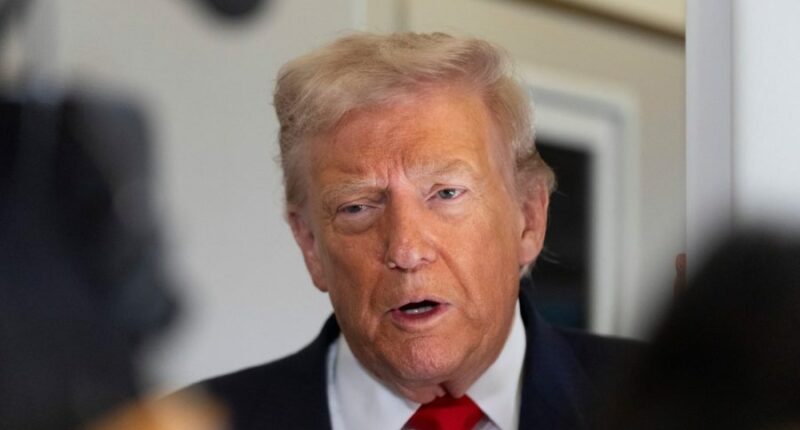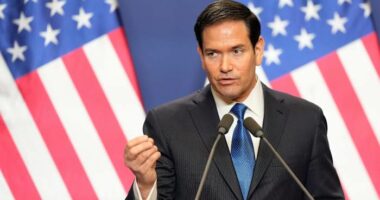Share this @internewscast.com

On Friday, President Trump expressed his willingness to finance the Supplemental Nutrition Assistance Program (SNAP) if he received “the appropriate legal direction.” This statement followed a federal judge’s order for officials to utilize an emergency fund earmarked for the program.
With SNAP benefits poised to expire on Saturday due to the continuing government shutdown, Trump administration officials have firmly resisted using the emergency fund for the program.
Trump took to Truth Social, stating, “Our government attorneys believe we lack the legal authority to finance SNAP with certain available funds, and now we have two conflicting court rulings on our potential actions.”
He added, “I do not want Americans to go hungry simply because the Radical Democrats refuse to do what’s necessary to reopen the government. Consequently, I’ve directed our attorneys to seek court clarification on how we can legally fund SNAP as swiftly as possible.”
Trump acknowledged that even if he accessed the emergency funds, SNAP benefits would still face delays in November. He also encouraged Americans to reach out to Democrats, urging them to resolve the shutdown.
Previously, the president had resorted to alternative funding sources to ensure military personnel received their pay.
U.S. District Judge John McConnell earlier Friday blocked the Trump administration from cutting off SNAP funding beginning this weekend because of the government shutdown. McConnell rejected arguments that the emergency fund can be used only for hurricanes or other uncontrollable catastrophes.
The judge ordered the U.S. Department of Agriculture (USDA) to distribute the emergency funds “timely or as soon as possible” and provide an update to the court by Monday.
McConnell’s ruling came moments after U.S. District Judge Indira Talwani issued a written order suggesting she’ll issue a similar block. Talwani gave the government until Monday to explain how it will use the contingency funds.
The roughly $5.25 billion fund is not enough to fully cover November benefits for the food assistance program, which will cost the government upward of $9 billion.
The administration can fully fund the gap for November using a separate source, known as Section 32 funds, which come from customs receipts. But both judges agreed the administration has discretion on whether to do so.
Lawmakers in both parties had raised concerns about the impending lapse of SNAP benefits, which help millions of Americans purchase food each month. SNAP is one of several government programs that have come under intense stress as the government shutdown stretches into its second month.











